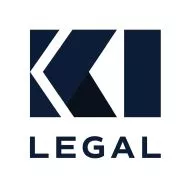As the commerce capital of the world, New Yok City has a rich business torts and litigation related legal history. The most common of these business torts is fraud. Fraud is often committed during the course of business dealings such as contract negotiations and the purchase and sale of assets.1 In certain cases, even where there is no intent to commit fraud, a court may find that one's actions constitute fraud as they result in similar harm. This is known as constructive fraud, which is defined as "a breach of duty which, irrespective of moral guilt and intent, the law declares fraudulent because of its tendency to deceive, to violate a confidence or to injure public or private interests."2
So, What is Required to be Liable for Constructive Fraud?
Constructive fraud is very similar to equitable fraud in that both contain the same elements of common law fraud except for the element of scienter, which is defined as the knowledge of a misrepresentation and the intent to defraud. For constructive fraud, the plaintiff need not show the intent of the defendant to defraud. Instead, the element of scienter is replaced with the existence of a fiduciary and confidential relationship existing between plaintiff and defendant. Therefore, the elements of constructive fraud are
- a material misrepresentation of fact;
- an existing fiduciary or confidential relationship;
- justifiable reliance by the plaintiff; and
- damages.3
A fiduciary duty is defined as a duty owed to act in another's best economic or legal interest, while a confidential duty is defined as a duty to maintain the privacy or secrecy of personal information that is provided. Some examples of a fiduciary or confidential relationship are "trustee and beneficiary, guardian and ward, agent and principal, and attorney and client."4 Constructive fraud not requiring scienter is necessary to protect those to whom confidential and fiduciary duties are owed to. Without the valid claim of constructive fraud, fiduciaries and others who are in a position of power and are trusted by the relying party would be free to violate their duties to the party that trusts them. This would essentially be leaving the trusted party with no accountability and would essentially be rendering the duty void. The ability to recover on the claim of constructive fraud is necessary to make the injured party whole again. As a policy purpose, this ensures that fiduciary and confidential duties are maintained, respected, and honored.
Constructive fraud cannot be proven where a court deems that there was no established fiduciary or confidential relationship between the parties. One such example of this was established in Sears v. First Pioneer Farm Credit, ACA.5 In Sears, the plaintiff failed to establish that he was owed a fiduciary duty from a loan officer whom he occasionally socialized with.6 The court determined that a fiduciary relationship exists where it was "'unique or distinct' from the relationship the institution typically enjoyed with individuals," and that "a fiduciary relationship usually does not exist in arms-length transactions between debtors and creditors."7
Footnotes
1. Omid H. Nasab, 2022 in New York Business Litigation 469–489, 476 (2022).
2. Id. (citing Southern Indus., Inc. v. Jeremias, 411 N.Y.S.2d 945, 948 (N.Y. App. Div. 1978).
3. See Nasab, 476-477 (2022).
4. Abercrombie v. Coll., 438 F. Supp. 2d 243, 274 (S.D.N.Y. 2006).
5. 46 A.D.3d 1282, 850 N.Y.S.2d 219 (2007).
6. See id. at 223.
7. Id.
The content of this article is intended to provide a general guide to the subject matter. Specialist advice should be sought about your specific circumstances.



